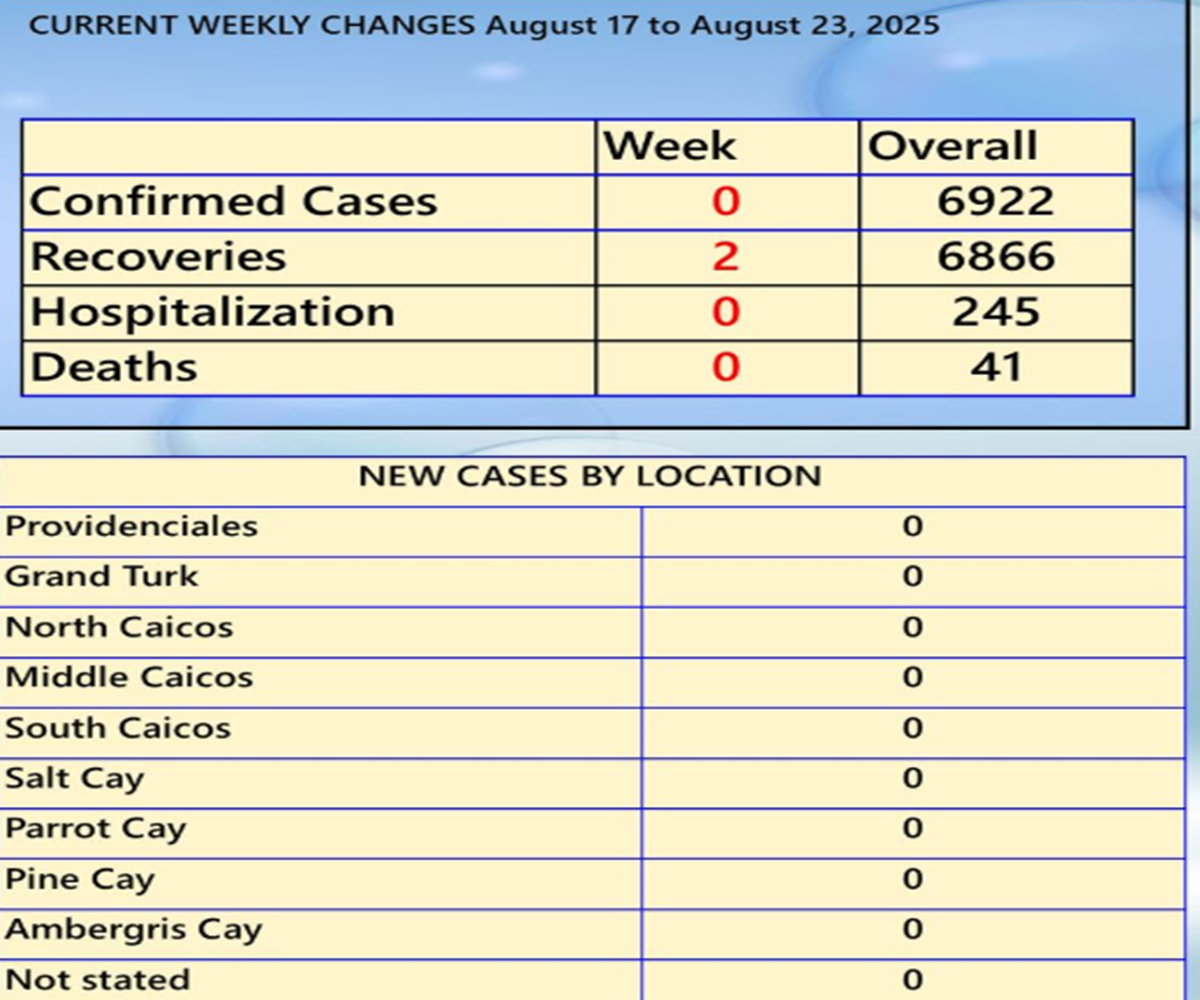Cleveland Clinic Expert Shares Six Simple Steps to Prevent Vast Majority of Strokes
December 5, 2023 – According to the World Stroke Organization (WSO), stroke is the leading cause of disability worldwide. The WSO says one in four people will have a stroke in their lifetimes, and each year over 12 million people worldwide have strokes. However, it adds that 90% of strokes are preventable by addressing a small number of risk factors that are responsible for most strokes. In The Bahamas, on average 224 people (or 9.56%) die annually from strokes.
Here, Andrew Russman, DO, Medical Director of Cleveland Clinic’s Comprehensive Stroke Center and a vascular neurology specialist, offers advice on how to reduce stroke risk by better managing existing health conditions and also through implementing lifestyle changes. “These tips are interrelated as most of the lifestyle changes mentioned also play a role in improving management of hypertension, high cholesterol and diabetes, which all increase stroke risk,” Dr. Russman points out.
neurology specialist, offers advice on how to reduce stroke risk by better managing existing health conditions and also through implementing lifestyle changes. “These tips are interrelated as most of the lifestyle changes mentioned also play a role in improving management of hypertension, high cholesterol and diabetes, which all increase stroke risk,” Dr. Russman points out.
- Reduce hypertension
Uncontrolled hypertension – that is, blood pressure that is consistently above 130/80 – is the single most important modifiable risk factor in stroke worldwide, says Dr. Russman.
Aside from medication, an important step in reducing blood pressure is to reduce salt intake, which Dr. Russman says is good advice even if you don’t have high blood pressure. “We recommend consuming no more than 2g of salt per day. I advise my patients to check food labels and nutritional websites for sodium levels as their intake is usually far higher than they realize,” he adds.
- Be wary of diabetes
It is important to be tested for diabetes, and if diagnosed, to manage the condition wells, says Dr. Russman. He explains that diabetes causes narrowing of small, medium and large blood vessels in the body, including vessels of the eyes, kidney, heart and brain. Owing to this, diabetes can contribute to a variety of vascular, cardiovascular and cerebrovascular problems including stroke. In addition, for patients who have survived a stroke, the risk of having a second is three times higher in those patients whose diabetes is not controlled.
Dr. Russman says that as part of their treatment plan, people with diabetes should have their condition monitored through HbA1C tests, which provide a three-month snapshot of their blood sugar control. “We recommend that these individuals aim for an HbA1C result of 7.0 or less. Taking prescribed medication correctly, watching their diet, exercising regularly, and following their healthcare provider’s recommendations will help them achieve this.”
- Address atrial fibrillation
The WSO says atrial fibrillation is associated with one in four strokes, and Dr. Russman says these strokes tend to be more severe and disabling than strokes associated with other risk factors.
“Atrial fibrillation is a heart rhythm condition characterized by very rapid heartbeats that don’t allow the top left chamber of the heart – the left atrium – to contract normally. Instead, it fibrillates and flutters so blood is not ejected normally from the chamber,” he says. “Anytime blood is stagnant for too long, it can form a blood clot that can travel elsewhere in the body. This clot could cause a stroke by blocking a blood vessel in the brain, depriving that part of the brain of the oxygen and nutrients it needs.”
Dr. Russman says atrial fibrillation is the most common acquired heart rhythm disorder in older adults, and its associated risk is strongly related to age. “The older you are, the more at risk you are of acquiring the condition, but also the higher the risk of stroke associated with the condition,” he says. “It is estimated that up to half of all patients with a heart rhythm condition are not aware of it. However, once diagnosed, atrial fibrillation can be treated with a blood-thinning medication. These do carry some risks, but the benefits far outweigh these in the vast majority of patients.”
- Manage cholesterol levels
In addition to reducing high levels of low-density lipoprotein (LDL) or ‘bad’ cholesterol through diet, for example, by avoiding saturated fat, individuals might be prescribed statin medications that reduce future risk of heart attacks and strokes. Dr. Russman says these medications, particularly rosuvastatin and atorvastatin, may benefit patients beyond simply reducing cholesterol levels in that they also appear to reduce inflammation and stabilize plaque build-up in blood vessels.
beyond simply reducing cholesterol levels in that they also appear to reduce inflammation and stabilize plaque build-up in blood vessels.
- Stop smoking
“Any type of smoking is associated with increased risk of cardiovascular disease and stroke, and is strongly associated with accelerated hardening of the arteries and narrowing of blood vessels in the brain, heart and elsewhere,” says Dr. Russman. “We therefore strongly recommend everyone completely stop any form of nicotine ingestion to significantly reduce their long-term risk for a multitude of diseases.”
- Adopt a healthy lifestyle
Dr. Russman recommends following an eating plan that is low in saturated fats and sodium, and to avoid alcohol and excessive caffeine consumption. Regular physical activity is also important as it can reduce the risk of stroke directly, but also indirectly as it helps to lower high blood pressure and blood sugar levels. Exercise can also help to reduce stress, as can other activities such as meditation or deep breathing, which is important as stress causes the body to release chemicals that can increase blood pressure, affect hormones and raise blood sugar levels, says Dr. Russman.

 News1 week ago
News1 week ago
 Caribbean News1 week ago
Caribbean News1 week ago
 News1 week ago
News1 week ago













